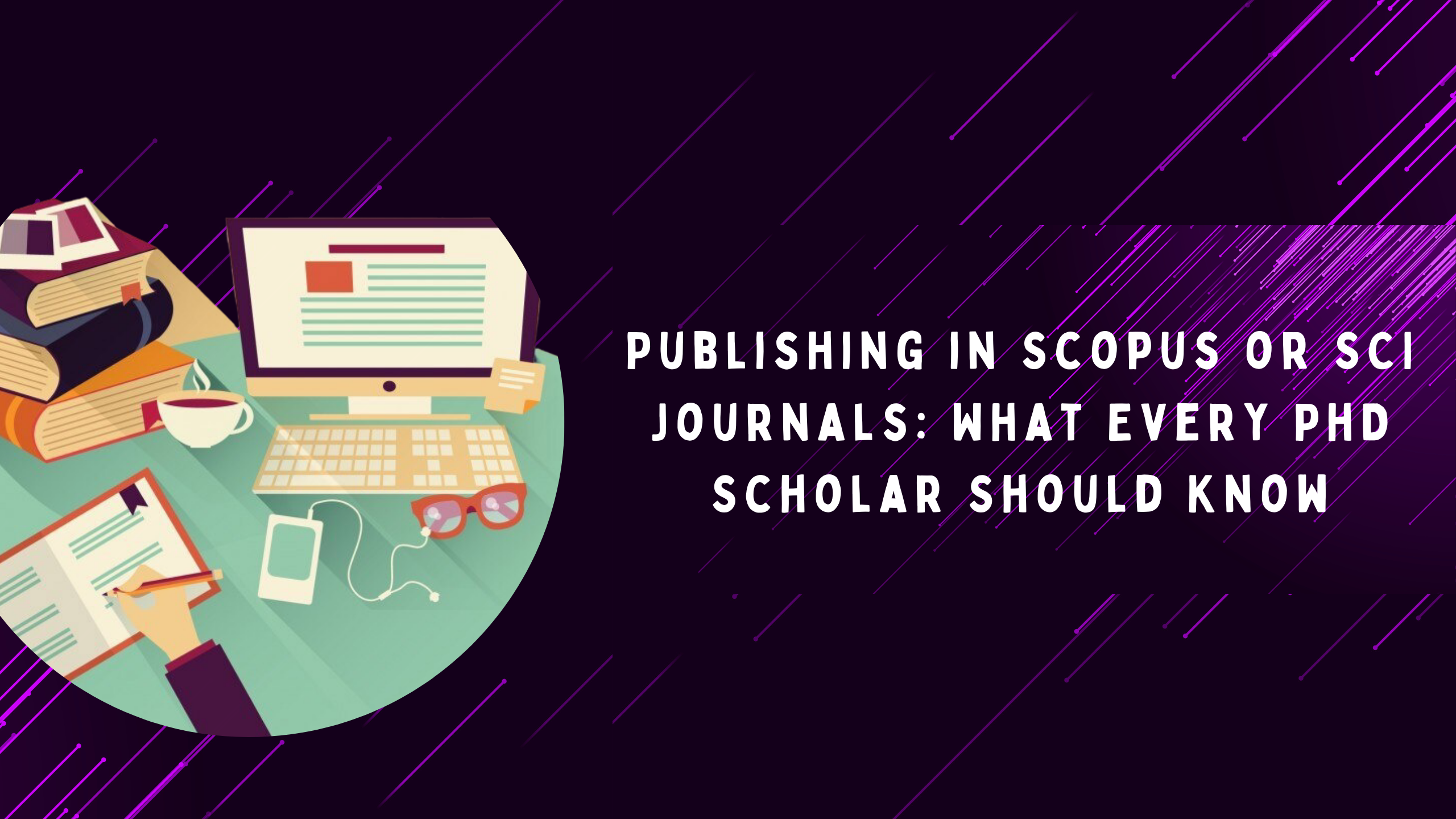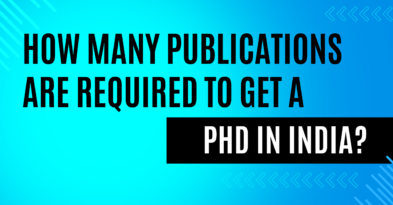Publishing in Scopus or SCI Journals: PhD Scholar Should Know
Kenfra Research - Shallo2025-04-22T11:23:11+05:30In the competitive world of academia, publishing in Scopus or SCI Journals is not just an achievement—it’s a necessity. For PhD scholars, publishing in Scopus or SCI Journals represents the gold standard in scholarly publishing, offering credibility, wide reach, and valuable recognition in the academic and research community. But navigating the publishing landscape can be overwhelming. This comprehensive guide will walk you through everything you need to know, from understanding their importance to preparing your manuscript and avoiding common pitfalls.

Why Publish in Scopus or SCI Journals?
Publishing in high-impact journals comes with several benefits:
- Academic Recognition: These journals have strict peer-review processes, so acceptance indicates high research quality.
- Career Advancement: Most academic institutions and funding bodies value publications in indexed journals.
- Global Visibility: Your research gets wider reach and is cited more frequently.
- Fulfillment of PhD Requirements: Many universities mandate at least one Scopus/SCI-indexed publication for thesis submission.
Understanding the Difference Between Scopus and SCI
While both Scopus and SCI journals are highly regarded, there are subtle differences:
Feature | Scopus | SCI (Science Citation Index) |
Managed By | Elsevier | Clarivate Analytics |
Scope | Covers science, technology, medicine, social sciences, and arts | Focuses mainly on science and technology |
Coverage | 20,000+ journals | Around 8,000 high-impact journals |
Citation Tracking | Yes | Yes, with Journal Impact Factor (JIF) |
Tip: SCI journals are usually more selective. If your research is innovative and data-rich, targeting SCI journals might be a great choice.
What Makes a Journal Reputable?
Before submitting your paper, make sure the journal meets these criteria:
- Indexed in Scopus or Web of Science
- Has a clear peer-review process
- Publishes regular issues without delay
- Lists editorial board members with academic credentials
- Clearly states its aims and scope
- Displays an Impact Factor (for SCI journals)
Avoid predatory journals that promise fast publication without peer review. These can damage your academic credibility.
How to Identify Genuine Scopus/SCI Journals
Here’s how to verify a journal’s authenticity:
- Check Scopus Journal List
- Visit: https://www.scopus.com/sources
- Use the search filters to find the journal by title, ISSN, or subject area.
- Check Web of Science Master Journal List
- Visit: https://mjl.clarivate.com/home
- Confirm if the journal is listed under Science Citation Index Expanded (SCIE).
- Verify on UGC-CARE (India-specific)
- UGC CARE also lists approved Scopus and SCI journals for Indian scholars.
Steps to Publish Your Research
Publishing in reputed journals requires careful planning and precision. Here’s a step-by-step guide:
Step 1: Choose the Right Journal
Align your research topic with the journal’s aims and scope. Study previously published papers for clarity.
Step 2: Prepare a High-Quality Manuscript
- Follow the journal’s author guidelines
- Ensure originality and proper citations
- Structure your paper with clear Abstract, Introduction, Methodology, Results, Discussion, Conclusion, and References
Step 3: Perform Plagiarism Check
Use advanced plagiarism detection tools. Most Scopus/SCI journals have zero tolerance for plagiarism.
Step 4: Submit Online
Most journals have a submission portal (like Elsevier’s Editorial Manager). Upload all required documents including:
- Manuscript
- Cover letter
- Conflict of interest statement
- Copyright form
Step 5: Peer Review Process
Wait for 4–12 weeks (or more). Be ready for:
- Minor/Major Revisions
- Conditional Acceptance
- Rejection (with or without suggestions)
Step 6: Address Reviewers’ Comments
Be professional and detailed when revising. Highlight all changes made in a response letter.
Step 7: Final Acceptance and Publication
Once accepted, the paper is either published online immediately (early view) or in the next journal issue.
Common Challenges Faced by PhD Scholars
- Manuscript Rejection: Often due to poor structure, lack of novelty, or language issues.
- Language Barriers: Non-native English speakers may struggle with academic writing.
- Finding the Right Journal: Many scholars target journals that don’t match their domain.
- Lack of Guidance: Without expert mentorship, the publishing journey can become frustrating.
- Plagiarism Issues: Even unintentional overlaps can cause rejection.
How Kenfra Can Help You Publish in Standard Journals
At Kenfra, we specialize in helping PhD scholars publish their research in Scopus and SCI-indexed journals. Here’s how we support your academic journey:
- Free Topic Selection tailored to trending research gaps
- Manuscript Writing Support from domain experts
- Advanced Plagiarism Checking & Removal
- Journal Recommendation based on scope, impact, and indexing
- Peer Review Handling with expert response to comments
- Editing & Proofreading for grammar, structure, and formatting
- Guaranteed Journal Publication only in standard, authentic journals
Whether you’re just starting out or stuck in the publication process, Kenfra’s experienced team can guide you at every stage.
Final Thoughts
Publishing in Scopus or SCI Journals isn’t just about fulfilling academic requirements—it’s about establishing your presence in the global research community. While the process may seem rigorous, with the right guidance, tools, and dedication, success is absolutely attainable. Publishing in Scopus or SCI Journals allows your research to gain the recognition it deserves. As a PhD scholar, let your hard work speak through credible publications. And remember, quality always trumps quantity. A single publication in a high-impact journal can make a world of difference.
Kenfra Research understands the challenges faced by PhD scholars and offers tailored solutions to support your academic goals. From topic selection to advanced plagiarism checking.









Leave a Reply